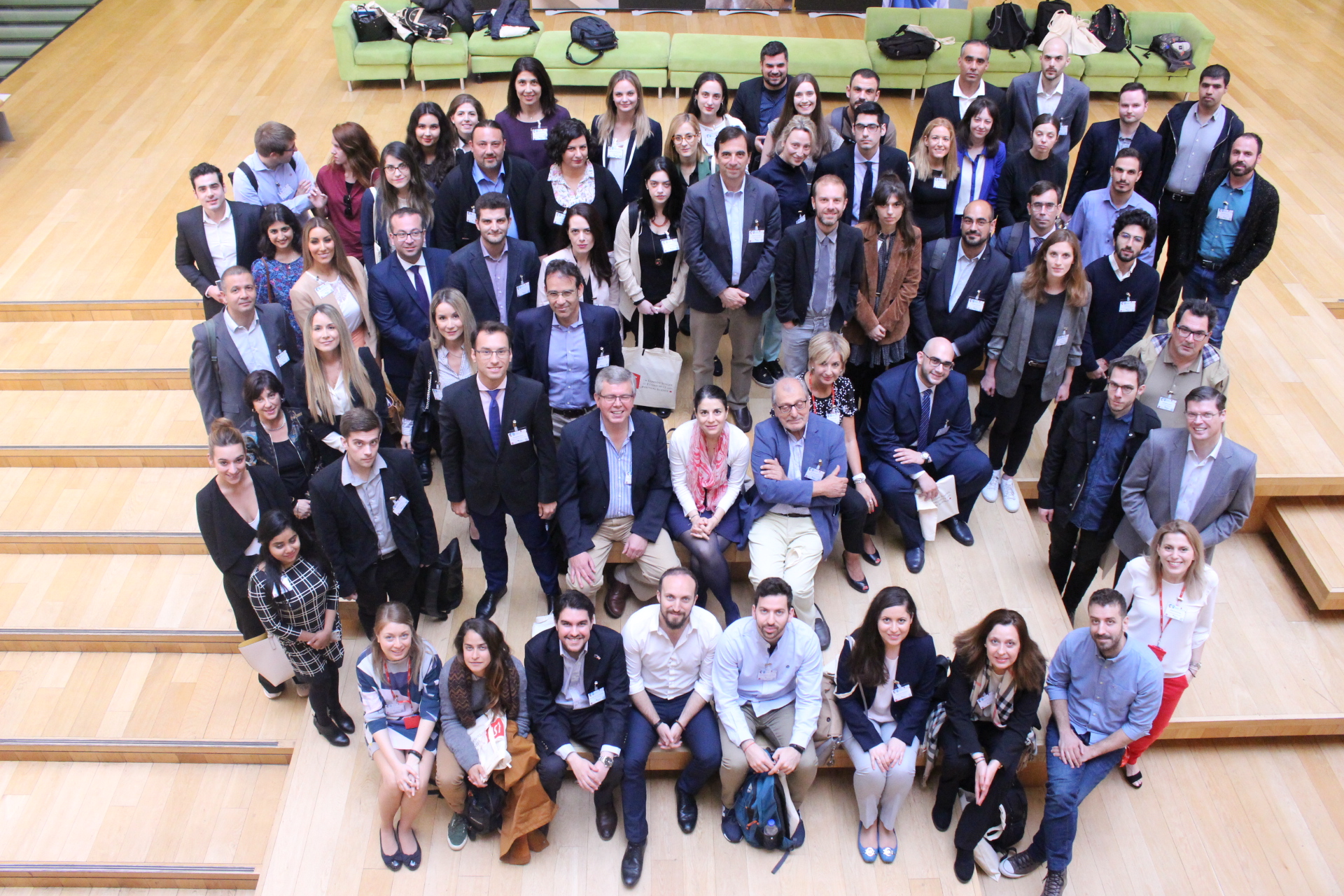The Hellenic Observatory, located in LSE’s European Institute, celebrates its 25th anniversary. Its Director, Kevin Featherstone, looks back at its story so far.
LSE has had a special relationship with Greece for many decades. From the 1970s till the 1990s, Greek students constituted one of the largest foreign groups on campus. Many LSE alumni have moved on to achieve much prominence in Greek public life: prime ministers, ministers, leaders in banking and commerce, transport and shipping, media and society, etc. And, the Hellenic Alumni Association of LSE remains one of the largest and most active of the School’s associations, having hosted major events over the years.
The creation of the Hellenic Observatory reflects this special bond. Greek academics at LSE and LSE alumni in Greece led the initiative to create a Chair and a unit. In many ways, the Observatory has been unique – when it was created, there was nothing quite like it at the School; latterly, others have followed its model. Internationally, it was also different: its focus was to be contemporary and the social sciences, rather than the arts or humanities; and the Chair that was created was endowed in perpetuity, with full tenure for its holder. The Observatory was to be a bridge between communities and a platform for research and discussion. Before I arrived in 2002, my predecessor, Loukas Tsoukalis, had got things off to a good start.

The Observatory has developed to be a “go to” reference point when an international audience wants expert knowledge and analysis on Greece and Cyprus. Each year, over 50,000 visits are made to its webpages and they are made from around the world: China; the Indian sub-continent; Africa; and beyond. And, every year, its research papers are downloaded on more than 30,000 occasions. This is testament to the Observatory’s raison d’être.
So, over the years, the Observatory has achieved much. It has hosted 500 speakers; welcomed 40,000 guests at its events; produced over 200 podcasts; and attracted over 150 researchers and visiting fellows. Its biennial PhD Symposium on Greece and Cyprus has itself almost 600 alumni. All in all, so many of Greece’s leading social scientists, young and old, have had ties, in one way or another, with the Observatory. The Observatory has, indeed, been the “bridge” that its original founders envisaged.
There are cherished memories. Our public events have welcomed almost all living prime ministers, as well as other senior ministers, public figures, and academics. A very special event was when we hosted the Patriarch, His All Holiness Vartholomeos, from Constantinople/Istanbul in the School’s Old Theatre. The protocol was exceptional and never has a top table in the Senior Dining Room comprised so many priests. The Patriarch’s address was itself exceptional: a rare occasion when a speaker received a standing ovation from literally everyone in the theatre. Another highlight was hosting a prime minister, Kostas Karamanlis, in the Peacock Theatre and filling its 1,000 seats.
Embarrassing moments were when anarchist students from another London university broke into the Old Theatre to throw eggs at a minister. And when my dialogue with Alexis Tsipras had progressed for ten minutes before we realised the sound system wasn’t working. More impactful were when our speakers made an unguarded comment or were challenged very effectively from the audience and these appeared prominently on the TV and press in Greece. The debt crisis made for some very lively debates and controversial presentations.
On a few occasions, we have been challenged, in private, as to why we were inviting a particular figure to come and speak at LSE. Our observers regarded such invitations as a great honour. That they did so was, of course, very pleasing. But we have always asserted that our role is to facilitate debate, in a climate of academic freedom, and as such there will always be some who object to what is being said. Such challenge is at the heart of university life. Our “unique selling point” and having a platform like LSE to exchange views on Greece and Cyprus is unbeatable.

Our visitors are often surprised how small the Observatory is, with only a limited number of staff. All recognise that we “punch above our weight”: our size belies our impact. That this is so, is also due to the tremendous collegiality that the Observatory has sustained over the years. Our academic and administrative staff have shown tremendous professionalism and commitment but have also made for a working environment that is praised by all who witness it. That is the foundation of the Observatory’s success.
I am proud of what we have done. And, now as I retire from the Eleftherios Venizelos Chair, I look forward to working with my successor – yet to be appointed – for a couple of years as we make a transition to the next stage.
A 25th anniversary is an occasion to look back and celebrate. But continued success depends on looking forward. We have exciting plans for the Observatory – for it to grow and to have resources for the long-term. There are new contributions to be made – in research, to public policy, to debate – as Greece and Europe face new (and sometimes not-so new) issues. For a country that has given the world so much; is located in such a neighbourhood; and has prompted near-existential challenges to itself and to Europe… who can doubt the value of this agenda? And, it is one that fits the very purpose of LSE itself: to be engaged with the outside world and to better understand it. Here’s to the next 25 years!
For more information on the Hellenic Observatory’s 25th Anniversary you can visit the dedicated webpage. A special publication, depicting the work, the various activities and some of the highest moments of the Observatory has also been published. You can also check out the short videos, recorded by dear friends of the Observatory, sharing their thoughts and memories in an attempt to highlight different aspects of our history and work.



